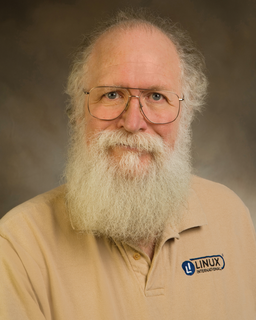
By Jon "Maddog" Hall
Some people say that "duplicating" copyrighted software is not "pirating," and I understand their reasoning. But for at least some people, under the laws of their countries, unauthorized duplicating is also a crime, whether it be a book, a song, or a software program. People are being prosecuted because of these laws that are created by legislators who listen to companies and others that do not believe in Free Software.
Personally, I think that anyone who creates something should have the right to say what happens to it, including duplication. I respect the licenses and desires of others, whether they charge money or license the work freely. I also honor software licenses if I take someone else's software and modify it. Within the range of licenses that people consider "open source," provisions sometimes limit what can be done with that software. I respect those provisions. If I were not willing to respect them, I would choose not to use that software.
Because I believe in the model of Free Software and that society in general will benefit more from Free Software than from closed source, proprietary software, I encourage people to license their work "freely."
In the past 40 years in which I have been in the software business, conditions have changed, and the old concepts of Intellectual Property (IP) require a massive update. Society in general creates the laws that give these protections; they are not natural laws (like gravity).
The Constitution of the United States contains the basis for the creation of the US Copyright and Patent offices, stating: "To promote the Progress of Science and useful Arts, by securing for limited Times to Authors and Inventors the exclusive Right to their respective Writings and Discoveries" (Article I, Section 8).
That particular part of the Constitution has generated a huge amount of law, most of which was influenced by companies and inventors who wanted more money from their copyrights and patents. The "limited Times" has been extended repeatedly. "Authors and Inventors" now encompass corporations, and the concept of what "Discoveries" are is continually weakened. Now, minor ideas, whether obvious or not, valuable or not, can be declared discoveries and have a patent applied, if not granted.
Finally, being the economic powerhouse that it is (or was), the United States has convinced (some might say "coerced") other countries to obey the IP laws of the United States or create their own laws.
Software escaped most of the copyright and patent laws until the early to mid-1980s, and there was plenty of innovation before then. But people who wanted to gain commercial advantage persuaded the government to associate copyright and patent laws to software.
So, why don't people do something about these laws? Because most people think they can ignore them. The average person is not affected by them unless they flagrantly violate them. They do not read their software licenses and freely break the law when they copy the software many times.
On the Free Software front, I have to explain why it is "free as in freedom" and not "free as in beer," because people don't understand why, when they make a change or improvement to Free Software they should not be able to charge per copy, "like Microsoft does."
They do not understand the trade-off, instead of having to pay for the software, their "contributions" move it forward.
What would happen if everyone who pirated software really had to obey the law, read and understand the licenses, and pay for all the software they duplicated? What if computers stopped working because the DRM software kept them from using the "pirated" media? Perhaps then people would demand a revision of these laws.Or they could just use Free Software.